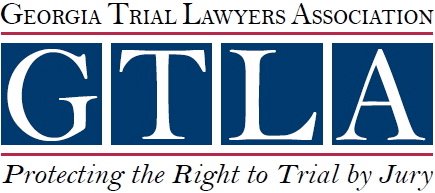Georgia’s personal injury laws can be confusing for those who are unfamiliar with them. One of the most important concepts is the idea of “fault” in personal injury claims. In some states, there are laws that require drivers to use their own insurance to cover medical bills and expenses, no matter who caused the accident. These are known as “no-fault” laws. However, Georgia does not follow a no-fault insurance system. Instead, it uses what is called an “at-fault” or “tort” system. Understanding this difference is key when dealing with personal injury claims in Georgia. At, Princenthal, May & Wilson, LLC , we are here to guide you through the legal process and help you navigate the complexities of your case.




Understanding Georgia’s At-Fault Insurance System
In Georgia, the at-fault insurance system means that the person who caused the accident is responsible for paying for the damages. This system puts the burden on the driver who is at fault to cover costs through their insurance. It differs from the no-fault system used in other states where each driver uses their own insurance to pay for their medical expenses, regardless of who caused the accident. The at-fault system can sometimes lead to disputes because drivers may not agree on who caused the accident. When an accident happens, the insurance companies of the drivers involved will investigate to determine who was at fault. The driver found responsible for causing the crash will have their insurance pay for the medical bills, property damage, and other losses of the injured parties. In some cases, this could mean paying a large sum of money if the injuries are severe.
This system affects how claims are handled and what kind of compensation can be sought. Victims can file a claim against the at-fault driver’s insurance to recover costs for medical bills, lost wages, and pain and suffering. However, proving fault is a major part of the process. If a driver cannot prove the other party’s fault, they might have to cover their own expenses. This is where having a knowledgeable attorney becomes essential in helping to gather evidence and build a strong case to show who was responsible.
Comparing No-Fault and At-Fault Insurance Systems
It can be helpful to understand how Georgia’s at-fault system compares to the no-fault systems used in other states. In a no-fault system, each driver uses their own insurance policy to pay for medical expenses and some other costs after an accident, no matter who caused it. This type of system is designed to reduce the number of lawsuits filed after car accidents because there is no need to prove who was responsible for minor injuries. Only in cases of severe injuries or high medical costs can a person in a no-fault state sue the other driver for additional damages.
In Georgia’s at-fault system, the focus is more on determining who caused the accident. Once fault is determined, the at-fault driver’s insurance is responsible for paying the damages of the injured party. Because of this, it is very common for claims in Georgia to involve negotiations and possibly even disputes over who was at fault. This process can sometimes take time as both insurance companies review evidence and testimonies to decide who was responsible. When disputes arise, having legal help can be very important in presenting a strong case and getting fair compensation.
The Impact on Personal Injury Claims in Georgia
The at-fault system in Georgia impacts personal injury claims in many ways. First, it means that proving fault is a crucial step in any claim. The injured party must show that the other driver was negligent or careless and that this behavior directly led to the accident and injuries. Evidence such as police reports, witness statements, photos of the accident scene, and medical records can all play a role in proving who was responsible. Without solid proof, an injured person may struggle to get the compensation they deserve for their injuries.
Another impact is the potential for disputes between insurance companies. Because the at-fault driver’s insurance is expected to cover all the costs, there is often a back-and-forth between the insurance companies involved to decide who will pay. The at-fault driver’s insurance company might try to argue that their policyholder was not fully to blame to minimize how much they have to pay. This can delay the process of receiving compensation, making it harder for the injured person to cover their medical bills and other expenses right away. In these situations, having an attorney to negotiate with the insurance company can help move the process along and ensure that the injured party is treated fairly.
The at-fault system also means that there is more room for negotiation and settlement between the injured party and the at-fault driver’s insurance company. Often, these cases do not go to court because both sides prefer to reach a settlement. This can help the injured person get compensation faster, but it also requires careful consideration to make sure that the settlement amount is fair and covers all the costs related to the injury. An attorney can help review settlement offers to make sure that they are adequate and that the injured person is not shortchanged.
The Role of Insurance Coverage in Georgia’s System
In Georgia, all drivers are required to carry a minimum amount of auto insurance. This coverage includes liability insurance, which pays for damages to other people if the policyholder is found at fault in an accident. The minimum coverage includes both bodily injury liability and property damage liability. Bodily injury liability covers medical expenses and lost wages for the injured party, while property damage liability pays for repairs to the other person’s vehicle or property.
Having sufficient insurance coverage is very important in an at-fault state like Georgia. If a driver is found to be at fault and does not have enough insurance to cover the damages, they could be held personally responsible for paying the difference. This could lead to serious financial problems, especially if the injuries are severe and the costs are high. Because of this risk, many drivers choose to carry more than the minimum required coverage to protect themselves in case they are found at fault in an accident. Drivers can also purchase additional coverage options, such as uninsured motorist coverage, to help cover their costs if they are hit by someone without insurance.
Hiring a Personal Injury Attorney How Long Will a Personal Injury Case Take?Related Videos
How Personal Injury Lawsuits Work in Georgia
When someone is injured in an accident in Georgia, they have the right to file a personal injury lawsuit against the at-fault driver. To succeed in a personal injury case, the injured party must prove that the other driver was negligent. This means showing that the other driver did not act with the care that a reasonable person would have used in a similar situation. If the court finds that the at-fault driver was indeed negligent, the injured person may receive compensation for their medical expenses, lost wages, pain, and suffering.
In some cases, both drivers might share some level of responsibility for the accident. Georgia uses a rule known as “modified comparative negligence.” This rule allows an injured person to recover damages even if they were partially at fault, as long as they were less than 50 percent responsible for the accident. However, their compensation will be reduced by their percentage of fault. For example, if a driver is found to be 20 percent at fault, their compensation would be reduced by 20 percent. This rule makes it possible for more people to recover damages in cases where both parties share some responsibility for the accident.
What to Do After a Car Accident in Georgia
If you are involved in a car accident in Georgia, there are important steps to take to protect your right to file a personal injury claim. The first step is to seek medical attention right away, even if you do not feel seriously injured at first. Some injuries may not show symptoms immediately but could become more serious later on. Getting a medical evaluation helps create a record of your injuries, which can be very important for your claim.
Representative Cases
You should also gather as much information as possible at the accident scene. This includes taking photos of the vehicles, any visible injuries, and the surrounding area. Collect contact information from the other driver, as well as any witnesses who saw the accident. This evidence can help support your case when you file a claim or lawsuit.
Contacting an attorney soon after the accident can also be helpful. A knowledgeable personal injury attorney can help you understand your rights and guide you through the process of filing a claim. They can handle communications with the insurance companies, gather evidence to prove fault, and negotiate a fair settlement on your behalf.
If you or a loved one has been injured in a car accident in Georgia and are facing the challenges of proving fault and negotiating with insurance companies, do not hesitate to seek help. At Princenthal, May & Wilson, LLC, we understand the complexities of Georgia’s at-fault insurance system and are ready to assist you in getting the compensation you deserve. Our experienced legal team will work tirelessly to protect your rights and help you navigate the claims process. Contact us today to schedule a consultation and take the first step toward securing the justice and recovery you need.





